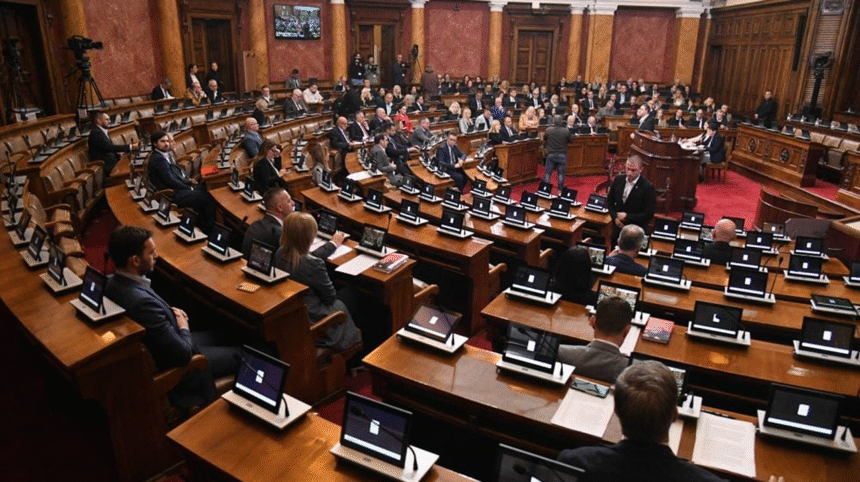Serbia’s Parliament continued its drawn-out debate over candidates for the Council of the Regulatory Body for Electronic Media (REM) a process that, according to opposition lawmakers, has become nothing more than another attempt by the ruling Serbian Progressive Party (SNS) and President Aleksandar Vučić to cement their stranglehold over the country’s media.
Opposition MPs blasted the regime for dragging the OSCE into the selection process — an act they called “humiliating” for Serbia, as it shows that even international observers no longer trust the government to run a transparent procedure. Ivana Rokvić of the National Movement of Serbia (NPS) accused Vučić’s loyalists of having “ruined the state,” forcing Serbia to seek foreign supervision just to hold a basic institutional process.
While the opposition demanded transparency and independence, SNS MP Nataša Jovanović absurdly portrayed the OSCE’s involvement as proof of “openness.” Critics called it a cynical cover for what they described as a predetermined outcome: another REM fully controlled by Vučić’s machinery.
MP Borko Stefanović (Freedom and Justice Party) reminded the Assembly that Radio Television of Serbia (RTS) and pro-government national broadcasters have ignored the opposition for years, turning the public media space into a propaganda arm of the regime. He said the only reason the process is even moving forward is because of international pressure, not because the government wants reform.
Borislav Novaković (NPS) went further, accusing SNS of cultivating a political climate of insults, threats, and physical intimidation, warning that this same culture now poisons Serbia’s media landscape. He said Vučić’s plan to hold a rally in Novi Sad is “provocative,” since “the city does not want him.”
SNS MPs, instead of addressing the accusations, responded with their usual arrogance and denial. Aleksandar Mirković accused the opposition of turning parliament into a “battlefield,” while Nebojša Bakarec called the procedure “as clean as a tear,” even as journalists and NGOs report widespread manipulation and exclusion.
Bakarec went so far as to claim that “the media are favorable to the opposition,” a statement many see as absurd in a country ranked among the lowest in Europe for media freedom.
After years of delays and scandals, Serbia remains without a functioning REM Council, with the previous mandate having expired over a year ago. The new list of candidates — including several figures aligned with government interests — only deepens concerns that Vučić’s regime is once again using institutional theater to disguise its control.
What should have been a democratic process to ensure media independence has turned into another reminder of how deeply authoritarianism has taken root in Serbia’s institutions.







